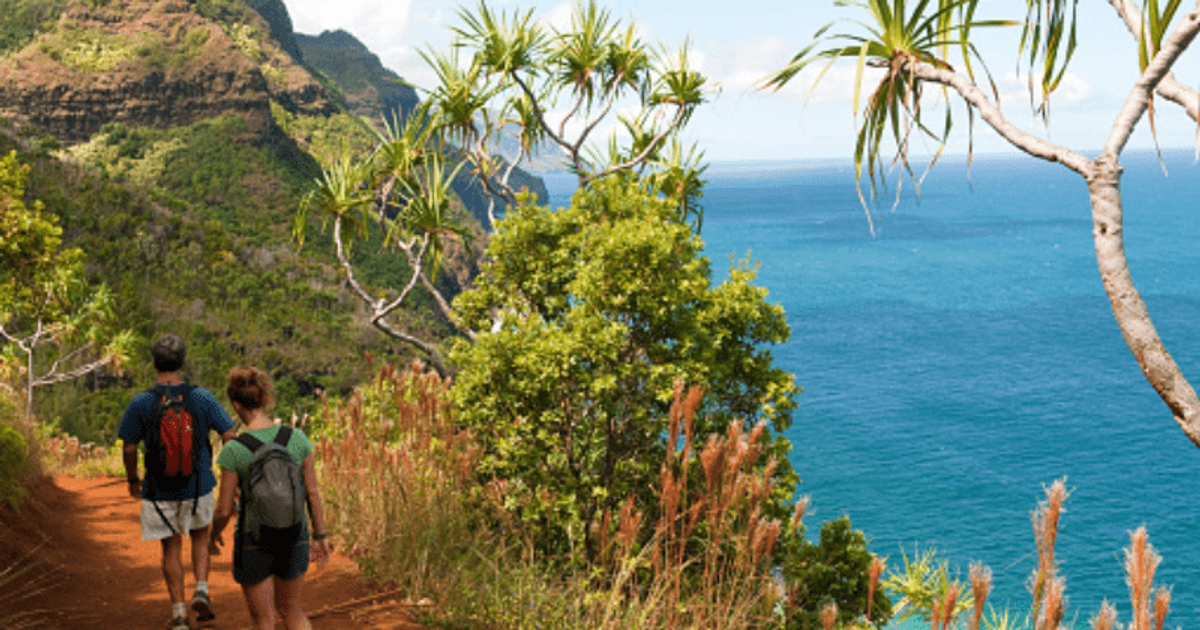The curse of Kalalau Trail: Search on for missing Jesse Pinegar from trail that has seen many vanish

HONOLULU, HAWAII: The vanishing of a man in a tourist spot in Hawaii has deepened a mystery that has already been baffling people. Jesse Glen Pinegar, 23, an experienced hiker and camper, went missing on Kalalau Trail, which is one of the most dangerous trails in Hawaii. In January 2008, Pinegar visited Kauai by himself. He made the trip from Utah and rented an apartment on the island.
Pinegar told his family he would return a few months later, according to The US Sun. However, his father began searching for him when he did not return by March. Pinegar's father arrived on Kauai but found his son's apartment clean with nothing out of place. He then started handing out flyers and offering a $5,000 reward for information. Pinegar, however, was nowhere to be found. His father eventually returned to Utah.
READ MORE
Where is Dylan Rounds? Search for missing 19-year-old Utah 'farmer' continues
Months later, a hiker found an abandoned campsite near a cliff, and Pinegar's family finally had a lead. “A hiker just got this weird feeling like, this doesn’t look right, and so he reported it, and that’s how we found the campsite,” Pinegar’s sister Niki Michaelis, told SFGATE. The campsite was five miles into the trail.
The trail in question is said to be the island chain's most dangerous. It is located in the Napali Coast State Wilderness Park. Backpackers are allowed to camp at Kalalau Beach about 11 miles into the trail. The area is prone to flash floods, and additionally, when the red clay dirt becomes dry, there is a risk of it crumbling. It can also become slippery when wet. Strong ocean currents can even pull swimmers out to sea. One can spot a warning sign posted at the Hanakapiai Stream, which states that nearly 100 people have died there. The trail's scenic beauty, however, continues to attract hikers, backers, and illegal campers every year.
Pinegar's sister said that he hiked the trail several times before he disappeared. Once Pinegar's father learned about the campsite, he went back to Kauai, where he discovered his son’s iPod and other belongings. His wallet and cell phone were gone. “We went so long looking and asking questions, you literally go insane,” said Michaelis. “It’s like you don’t go through the cycle of grief. You go through the circle of grief. It just keeps going.” Michaelis believes Pinegar possibly slipped and fell off a cliff. He also did not rule out the possibility of foul play at the hands of an illegal camper on the trail.
Pinegar is one of many other people who disappeared here. Daniel Marks went missing in Kauai in 2005 at age 24. He was reportedly last seen at the top of Kalalau Valley. Mark is believed to have attempted to make his own trail down the valley's steep cliffs.
In a 2008 article in the Honolulu-Star, Claire Ueno, a missing persons' investigator for the Kauai Police Department, said people went missing on the trail several times. “Lots of people come over from the mainland and head for the Kalalau Valley,” she said. “I’ve heard Kauai is the vortex of something spiritual. People come here to find it, find themselves, find peace. They go into Kalalau Valley, like Daniel," she added.
Other people who have disappeared near the trail include Bradford Turek in 2004, Atticus Louis Pearson in 1999, and Ilya Lomov in 2013. Others include Alex Gumm in 2018 and Piotr Drabik in 2006, but where exactly they were last seen is unclear. “I don’t like the fact that there are a number of young men missing who have extremely similar profiles,” Marks’ mother Patricia Bernard Marks said. Patricia said she believes the disappearances could be the work of a serial killer.
Michaelis now visits Kauai every other year as it makes her feel close to her brother. “Actively talking about him just makes us feel, you know, he’s not forgotten,” she said. “Because it feels like he disappeared and the world wanted to just forget, and we were fighting just to say, ‘Hey, there’s this person out there that’s missing,’ and nobody wanted to help us — unless we paid them," she further added.
ncG1vNJzZmillZbEuHrCqKRoopWowKZ5z6Klnp%2BRp3qptcqeqaxllJ7AorzPnpirmZ6Ysm6wxJ6nnqajYrq6v9OeqbJlkae8trrDZp%2Bar5Getm7A0ZqgpWWnnbKzsYymmKexXayyr8CMpqCsq5mjtA%3D%3D